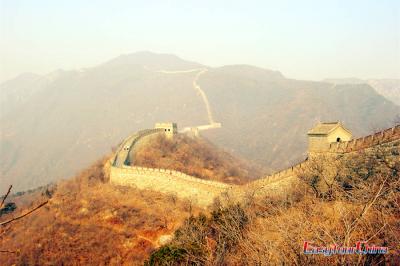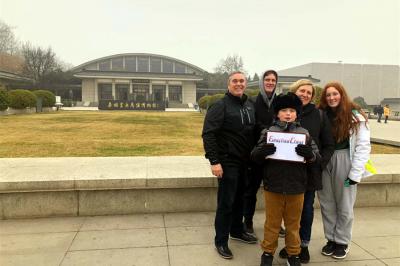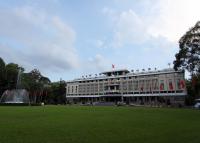Temple of the Town God (Chenghuang Miao)
Located in the Middle Fangbang Road, the Temple of the Town God (Chenghuang Miao) is a historic place to pray in Shanghai. As it’s in the back of Yu Garden scenic spot, and plays a role as a city’s market, so the Temple of the Town God is also called Yu Garden Market. What’s more, Temple of the Town God keeps its ancient buildings and decorations, so it’s counted into a part of Shanghai Old Street.
Featuring rich ancient Chinese architectural styles and characteristics, Temple of the Town God is one of the orthodox Taoist temples in Shanghai. Chenghuang is one of the most important gods in the ancient culture of Han people, most of them are famous ministers and heroes of local people; Han people and Taoism believe the god guarding the city. Shanghai Chenghuang Miao building belongs to the style of southern China, red walls mud tile, and consist of square, Huoguang hall (main hall), Yuanchen hall, hall of the god of wealth, Cihang hall, Chenghuang hall and Niangniang hall.
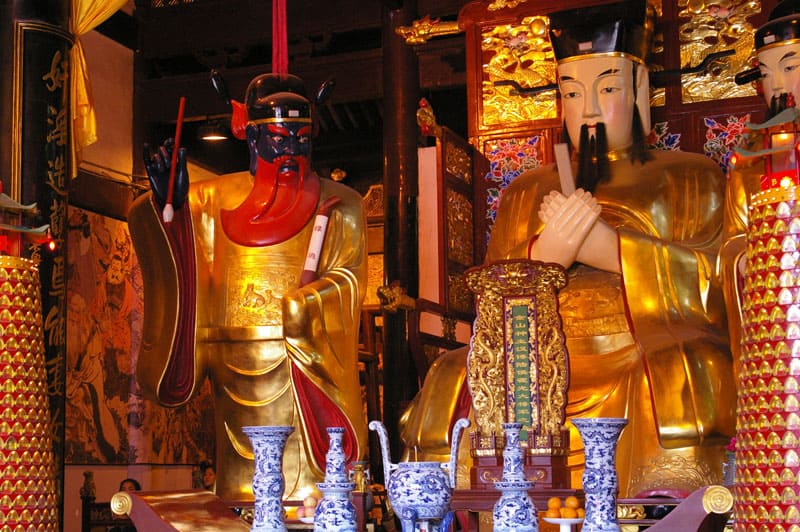
Facts
- In Chinese: 城隍庙/豫园市场
- Address: No.249 Middle Fangbang Road, Huangpu District, Shanghai
- Opening time: 08:00 – 21:00
- Best time to visit: just avoid Chinese traditional festivals
- Ticket price: RMB10
- History: 600+
History & Development
Temple of the Town God enjoys a high reputation both at home and abroad by its long history and magnificent architecture. It said that the Temple of the Town God was built by Sun Hao, the king of Wu kingdom during 220 to 280 A.D, in memory of General Huo Guang. Till the reign of Yongle in the Ming Dynasty (1403 - 1424 A.D), it was transformed into its present form, Chenghuang Miao. The temple became well known and frequented by the Shanghai local in the Qing Dynasty.
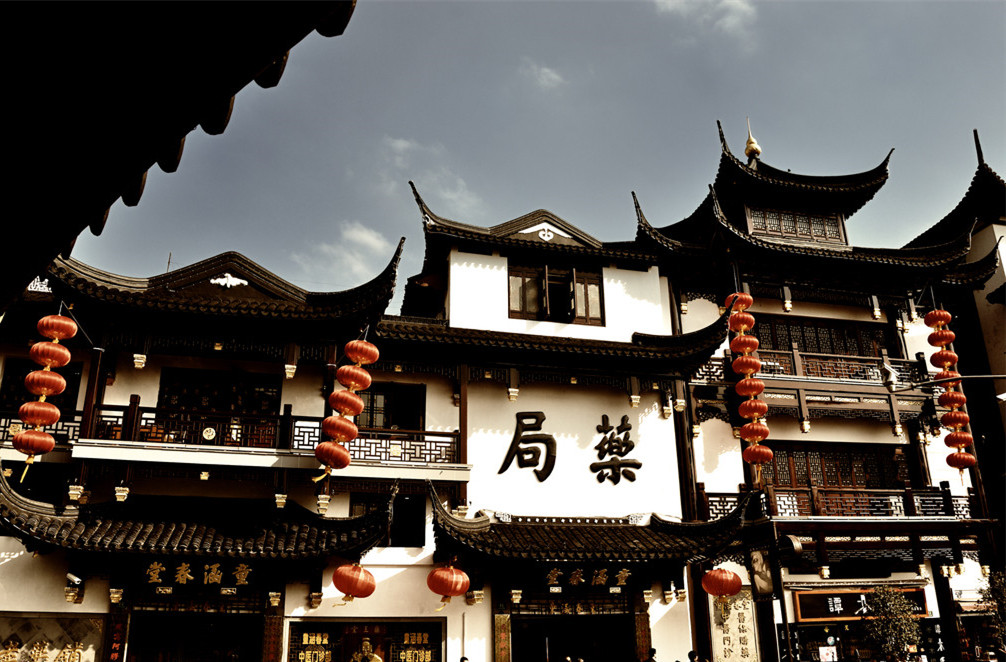
In the temple, sits a statue of the town god. In the ancient times, people imagined that the city was protected by a god known as town god. It was believed that town god was empowered by the celestial ruler to exterminate evils in towns and cities and make citizens live a prosperous and happy life. Under his protection, people could live peacefully. People honored him as a god and believed that he would bring them peace and happiness. Even today, every year at a fixed time, people come to the temples and show their respect for their protectors by kowtowing and offering some sacrifices. Usually, there are one or two sacrificial ceremonies each year. The ceremonies are important occasions for both old and young.
After the opening of Shanghai Port, merchants swarmed around the temple and surrounding areas and fostered a flourishing market.
Today, it is rebuilt into a large-scale tourist and shopping center. The Town God's Temple, known today as the Yuyuan Market, is really well called "the kingdom of snacks", has become an ideal place to taste all kinds of local snacks. It have pooled many local refection such as the distinctive desserts in Lu Bo Lang Restaurant, the steamed buns with vegetable stuffing in Song Yue Lou Restaurant, the pigeon-egg-like dumplings in Osmanthus Hall Confectionery Store, the Babaofan in Song Yun Lou Restaurant, the Nanxiang Xiaolongbao and the dumplings with the wine stuffing.
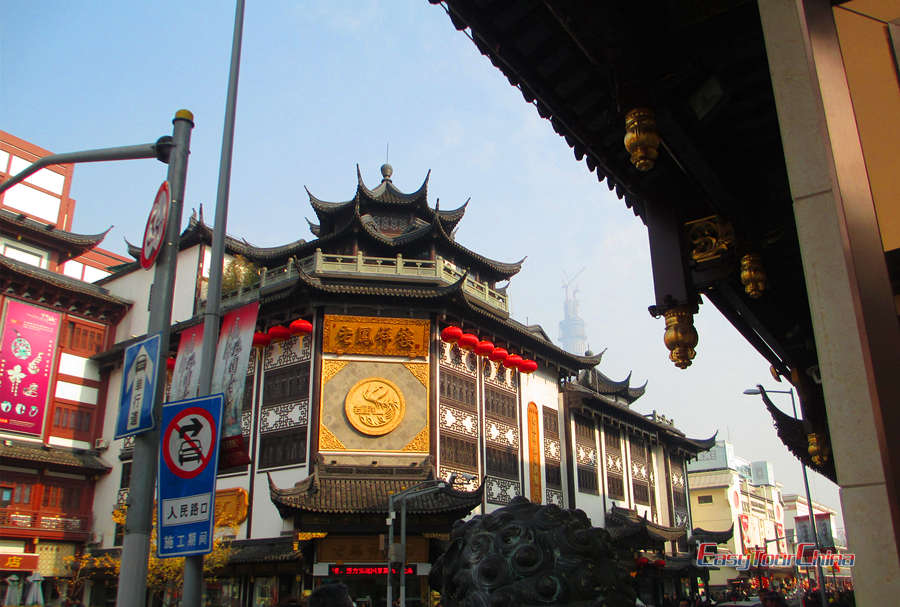
Besides, there are kinds of cultural and recreational activities in this area such as various exhibitions of flowers, calligraphies, paintings, bizarre stones, excellent folk performances of cock fighting, acrobatic performance and handwriting performance, and featured recreations also occur during traditional Chinese festivals.
What to Do?
1. Pray for good luck and fortune. Chenghuang Miao is one of the best suitable places for praying in Shanghai. When you visit here, you can see so many locals and visitors pray for their families.
2. Look for tasty food. As a common city market, Yu Garden Market is a comprehensive market gathering commodities, souvenirs and various food and snacks. There is a large part you can enjoy delicious food.
3. Appreciate ancient buildings. The Temple of Town God owns one of the most representative ancient traditional buildings.
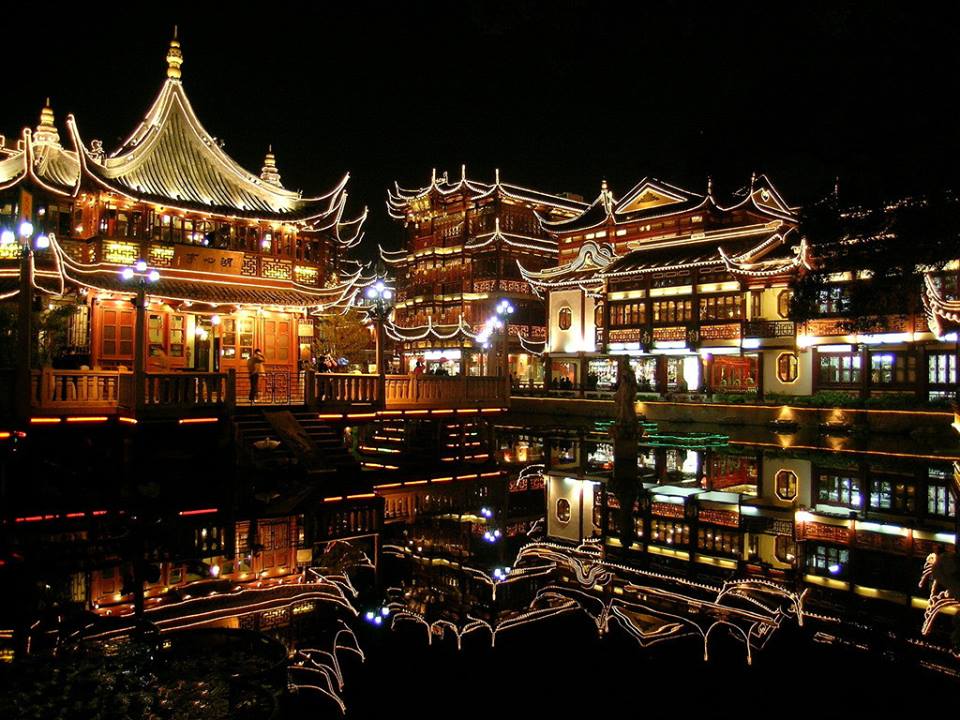
How to Get There?
Metro Line 10 runs to Yu Garden Station. Leave from No.3 Exit and walk for 10 minutes, and then you can reach the destination.
Bus 11, 64, 801, 920 or 930 can take you to Xiao Dongmen Station. After getting off, walk for 8 minutes to get to Yu Garden Market (Temple of the Town God).
